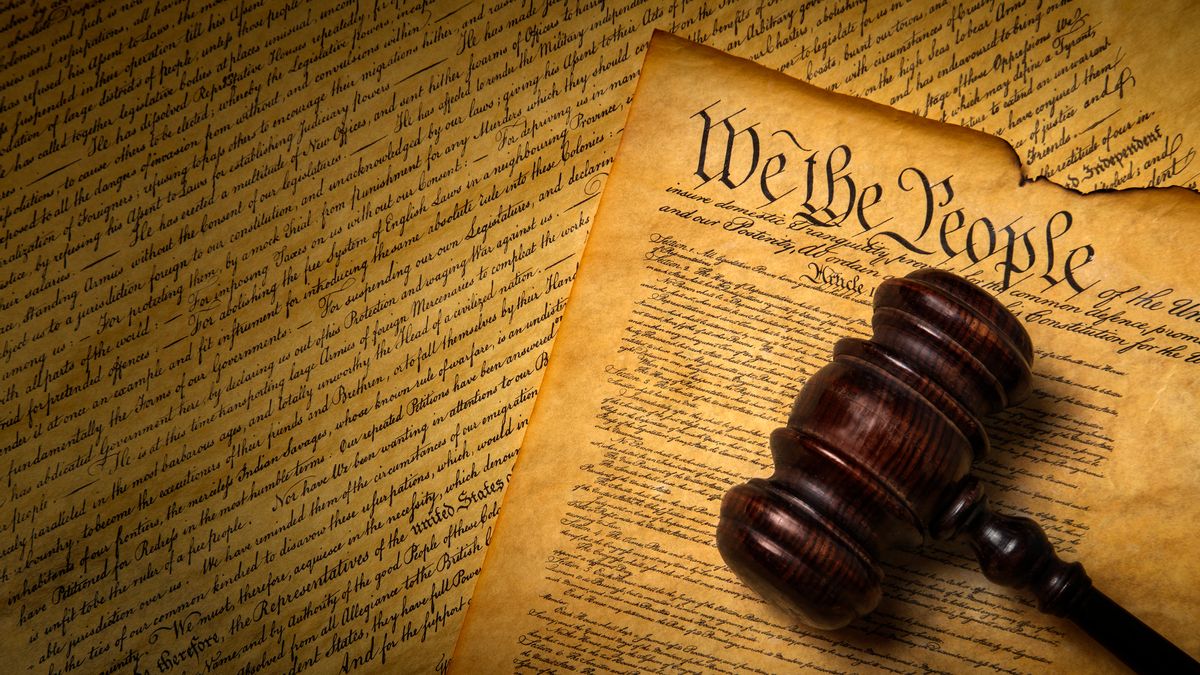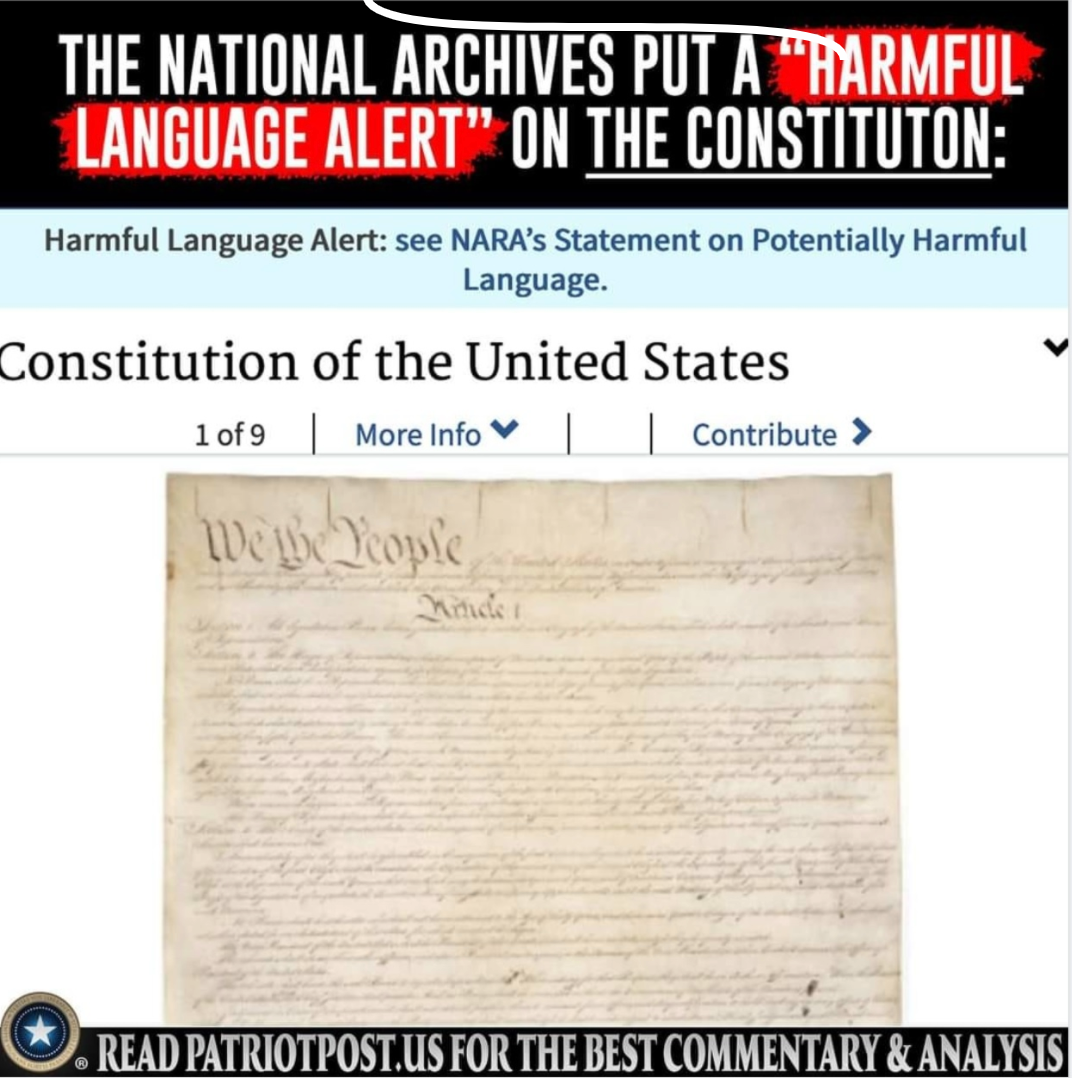The warning was not specific to the Declaration of Independence, Bill of Rights or the Constitution. Rather, it was placed as a banner across various records included in the website’s catalog.
In early September 2021, the U.S. National Archives Records Association (NARA) introduced a “Harmful Language Alert” to accompany some historical documents on its website, including the Declaration of Independence, Bill of Rights, and the Constitution.
The move was reported by media outlets and several conservative news publications, including The Federalist and The Washington Examiner, and was featured in social media memes sent to Snopes by readers, such as the one below:
But the newly installed warning was taken out of context. While it is true that the alert appeared as a banner on digital records in the website’s online catalog, including the nation’s founding documents, the warning was not connected to any specific document but was instead provided as a blanket statement regarding potentially harmful language in any document.
After the statement appeared on the digital archive database, some social media users took to Twitter for clarification on why founding documents might be considered harmful. NARA responded by stating that the alert “appears at the top of the page while you are using the online Catalog.”
“The Catalog and web pages contain some content that may be harmful or difficult to view. NARA’s records span the history of the United States, and it is our charge to preserve and make available these historical records,” wrote NARA in an online statement.
“As a result, some of the materials presented here may reflect outdated, biased, offensive, and possibly violent views and opinions. In addition, some of the materials may relate to violent or graphic events and are preserved for their historical significance.”
Such content includes items that may reflect racist, sexist, or xenophobic opinions or be discriminatory against views on sexuality, gender, and religion. Other items include graphic descriptions of historical events like a violent death, medical procedures, crime, acts of war or terrorism, and natural disasters.
Sources
Constitutional Convention. Constitution of the United States. 1787. National Archives at Washington, DC - Textual Reference(RDT1).
Department of State. 9/1789- (Predecessor) and National Archives and Records Administration. Office of the Federal Register. 4/1/1985-. Bill of Rights. 1789. National Archives at Washington, DC - Textual Reference(RDT1).
National Archives Introduces “harmful Language Alert” for Records, Including Constitution. https://www.yahoo.com/now/national-archives-introduces-harmful-language-185100813.html. Accessed 10 Sept. 2021.
Washington Examiner, 8 Sept. 2021, https://www.washingtonexaminer.com/news/national-archives-introduce-harmful-content-warning.
“National Archives Slaps ‘Harmful Content’ Warning On Constitution.” The Federalist, 8 Sept. 2021, https://thefederalist.com/2021/09/08/national-archives-issues-harmful-content-warning-on-constitution-all-other-founding-documents/.
President (1974-1977 : Ford). Office of the Counsellor to the President. 8/1974-1/1977. Declaration of Independence. 1974. Gerald R. Ford Library(LP-GRF).


